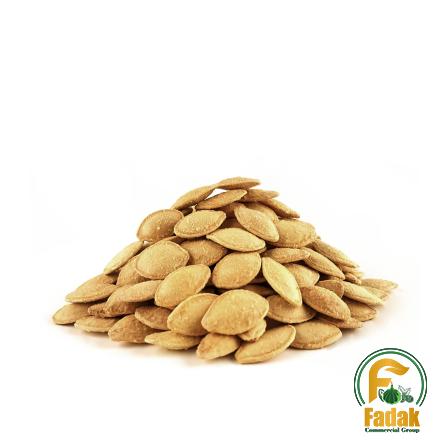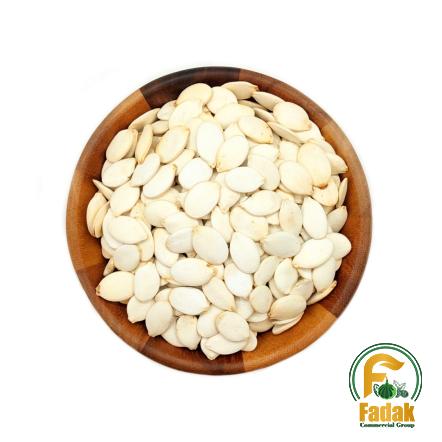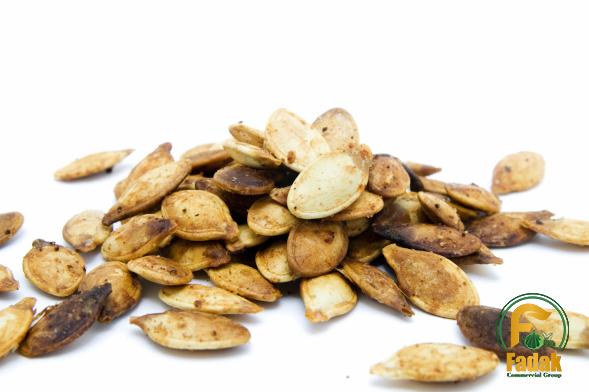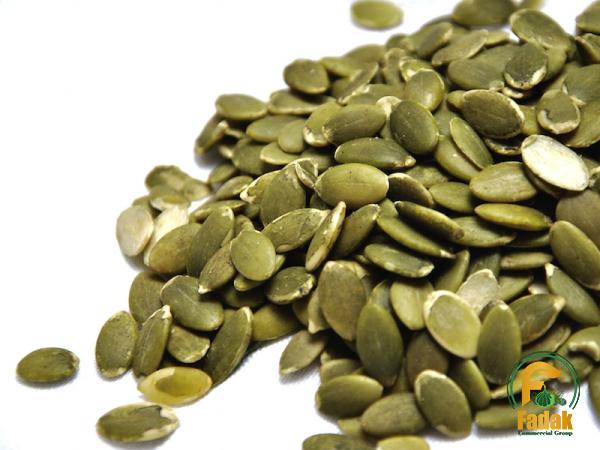India is one of the countries that is very active in the trade of almond with shell, and every year a large amount is exported from this country at different price. In fact, in recent years, this country has made great progress in the field of agriculture and horticulture. This industry in India is receiving assistance from some of the most well-known companies in the technology sector on the planet, including Amazon, Microsoft, and Cisco, as well as some of the most well-known companies in the Indian technology industry and agriculture sector, as well as numerous startups. The Prime Minister of India, Narendra Modi, recently made an announcement that the government would no longer be participating in negotiations and would instead begin the process of signing contracts with international technology companies in order to improve the standards of food production in India. The government of India is making an effort to improve both the quality and quantity of agricultural products by analyzing data such as soil quality, crop yield, and even the type of land ownership. This endeavor is being carried out with the use of software and other relevant instruments.  In addition to signing preliminary agreements with the three technology giants, the Indian government also signed initial agreements with Mumbai-based startup giant Reliance Jio (one of the pioneers of India’s startup ecosystem) and agricultural giant ICT (Holding based in Calcutta) to share information and land statistics. Both of these companies are based in India. Cooperation will be offered by the Indian agricultural sector. The data presented here was gathered from farmed land throughout the course of the last seven years. The leader of the Indian Agricultural Union, which has its headquarters in Hyderabad, has emphasized that the utilization of this information will not only lead to an improvement in the quality of agricultural products, but it will also assist the officials of the agricultural sector in modernizing the industries that are ancillary to and involved in the production of agricultural goods. In addition to these advantages, one of the other positive outcomes of this innovative partnership will be an increase in agricultural product exports, as well as an ease in the harvesting process and the distribution of agricultural goods. Reddy continues by saying that although agricultural products from India have the potential to meet international standards, the fertility rate and product traceability are not in a positive position.
In addition to signing preliminary agreements with the three technology giants, the Indian government also signed initial agreements with Mumbai-based startup giant Reliance Jio (one of the pioneers of India’s startup ecosystem) and agricultural giant ICT (Holding based in Calcutta) to share information and land statistics. Both of these companies are based in India. Cooperation will be offered by the Indian agricultural sector. The data presented here was gathered from farmed land throughout the course of the last seven years. The leader of the Indian Agricultural Union, which has its headquarters in Hyderabad, has emphasized that the utilization of this information will not only lead to an improvement in the quality of agricultural products, but it will also assist the officials of the agricultural sector in modernizing the industries that are ancillary to and involved in the production of agricultural goods. In addition to these advantages, one of the other positive outcomes of this innovative partnership will be an increase in agricultural product exports, as well as an ease in the harvesting process and the distribution of agricultural goods. Reddy continues by saying that although agricultural products from India have the potential to meet international standards, the fertility rate and product traceability are not in a positive position.  One year, India produces over 21 million tons of mangoes, yet it is difficult to track the production and sale of even one kilogram of this product. Another example is that it is difficult to follow the production of even one gram of cocoa. In addition, agriculture is a massive sector, and the quantity of produce shifts depending on the prevailing climatic conditions. Therefore, the digitalization of agricultural information as a guiding factor for the standardization of agricultural goods will play an essential role in the expansion of this industry. This industry will also play an essential part in the growth of the food and beverage business. Providing leadership for industry-wide improvements in the agricultural sector According to the terms of this agreement, major technology companies have agreed to lend their support to the government in order to create technological solutions for the “farm-to-fork” service model. The farm-to-fork (or farm-to-fork) method is being considered as a potential means of preserving the nutrients included in agricultural goods and lowering the amount of food that is wasted. Analysts in both the economic and agricultural sectors are of the opinion that these alterations represent a significant step toward carrying out and modernizing the defunct reforms that, given the competitive nature of this industry, ought to have been carried out much sooner.
One year, India produces over 21 million tons of mangoes, yet it is difficult to track the production and sale of even one kilogram of this product. Another example is that it is difficult to follow the production of even one gram of cocoa. In addition, agriculture is a massive sector, and the quantity of produce shifts depending on the prevailing climatic conditions. Therefore, the digitalization of agricultural information as a guiding factor for the standardization of agricultural goods will play an essential role in the expansion of this industry. This industry will also play an essential part in the growth of the food and beverage business. Providing leadership for industry-wide improvements in the agricultural sector According to the terms of this agreement, major technology companies have agreed to lend their support to the government in order to create technological solutions for the “farm-to-fork” service model. The farm-to-fork (or farm-to-fork) method is being considered as a potential means of preserving the nutrients included in agricultural goods and lowering the amount of food that is wasted. Analysts in both the economic and agricultural sectors are of the opinion that these alterations represent a significant step toward carrying out and modernizing the defunct reforms that, given the competitive nature of this industry, ought to have been carried out much sooner.  In India, which has a population of over 1.3 billion people, agriculture and industries closely related to it employ approximately half of the country’s workforce. This sector is the fifth largest industry in Asia, which is home to the continent’s third most robust economy. The agricultural sector in India is receiving assistance from some of the most influential corporations in the technology industry. These partnerships will not only lead to an increase in national income, a reduction in imports, and a decrease in the amount of food that is wasted, but they will also make it easier to attract investment in the supply chain, which will lead to an increase in the competitiveness of the Indian agricultural industry, which will lead to an increase in its exports. The importance of incorporating digital technologies into the agricultural sector The first step in the process of digitization is to receive and categorize all of the information that has been received. This includes information about planting patterns, the health of soil, the insurance of agricultural products, and the meteorological conditions of each region. All of the information will be processed using artificial intelligence (AI), and then it will be transmitted to farmers and they will receive training on how to use it under the supervision of specialists in the agriculture industry.
In India, which has a population of over 1.3 billion people, agriculture and industries closely related to it employ approximately half of the country’s workforce. This sector is the fifth largest industry in Asia, which is home to the continent’s third most robust economy. The agricultural sector in India is receiving assistance from some of the most influential corporations in the technology industry. These partnerships will not only lead to an increase in national income, a reduction in imports, and a decrease in the amount of food that is wasted, but they will also make it easier to attract investment in the supply chain, which will lead to an increase in the competitiveness of the Indian agricultural industry, which will lead to an increase in its exports. The importance of incorporating digital technologies into the agricultural sector The first step in the process of digitization is to receive and categorize all of the information that has been received. This includes information about planting patterns, the health of soil, the insurance of agricultural products, and the meteorological conditions of each region. All of the information will be processed using artificial intelligence (AI), and then it will be transmitted to farmers and they will receive training on how to use it under the supervision of specialists in the agriculture industry.  The farmers have high hopes that this information will have a positive impact on the crop output, the control of water usage, the infrastructure services, the storage system, and the automation of product distribution. Reddy continues by saying that the lessons learned during the Corona era demonstrate that digitalization is going to be required in the post-Corona age if the agricultural business is going to achieve better levels of both transparency and efficiency in its operations. The data that was provided by the Niti Ayog, which is India’s development think tank, indicates that the growth rate of the agriculture industry in India should be about 4% or more in order to maintain the yearly growth rate of 8-10%. The National Institution for Transforming India (NITI Aayog) is a government agency in India that was founded to develop socio-economic planning and to alleviate poverty. It would appear that the digitalization of this business through the use of sensor-assisted soil element evaluation technologies, automatic and targeted monitoring of agricultural products, and intelligent control of agricultural machinery is essential to achieving the goals set by NITI Aayog. One of the aims of this project is to make the process of planning easier, as well as improve both the efficiency and quality of the products that are produced and ensure that the appropriate general development plans are put into effect.
The farmers have high hopes that this information will have a positive impact on the crop output, the control of water usage, the infrastructure services, the storage system, and the automation of product distribution. Reddy continues by saying that the lessons learned during the Corona era demonstrate that digitalization is going to be required in the post-Corona age if the agricultural business is going to achieve better levels of both transparency and efficiency in its operations. The data that was provided by the Niti Ayog, which is India’s development think tank, indicates that the growth rate of the agriculture industry in India should be about 4% or more in order to maintain the yearly growth rate of 8-10%. The National Institution for Transforming India (NITI Aayog) is a government agency in India that was founded to develop socio-economic planning and to alleviate poverty. It would appear that the digitalization of this business through the use of sensor-assisted soil element evaluation technologies, automatic and targeted monitoring of agricultural products, and intelligent control of agricultural machinery is essential to achieving the goals set by NITI Aayog. One of the aims of this project is to make the process of planning easier, as well as improve both the efficiency and quality of the products that are produced and ensure that the appropriate general development plans are put into effect.










Your comment submitted.